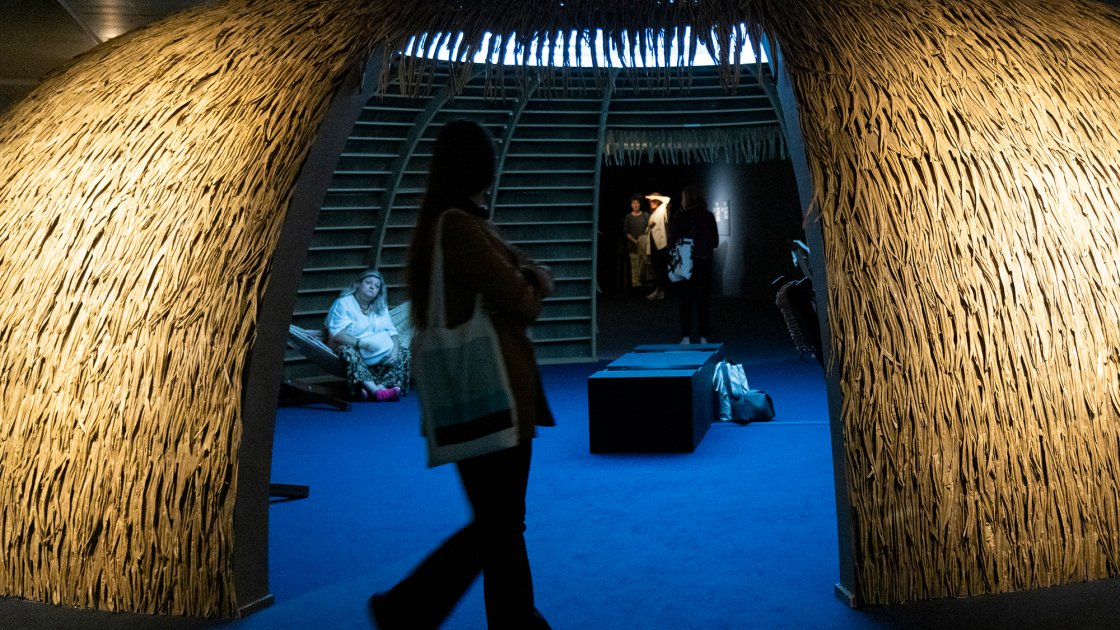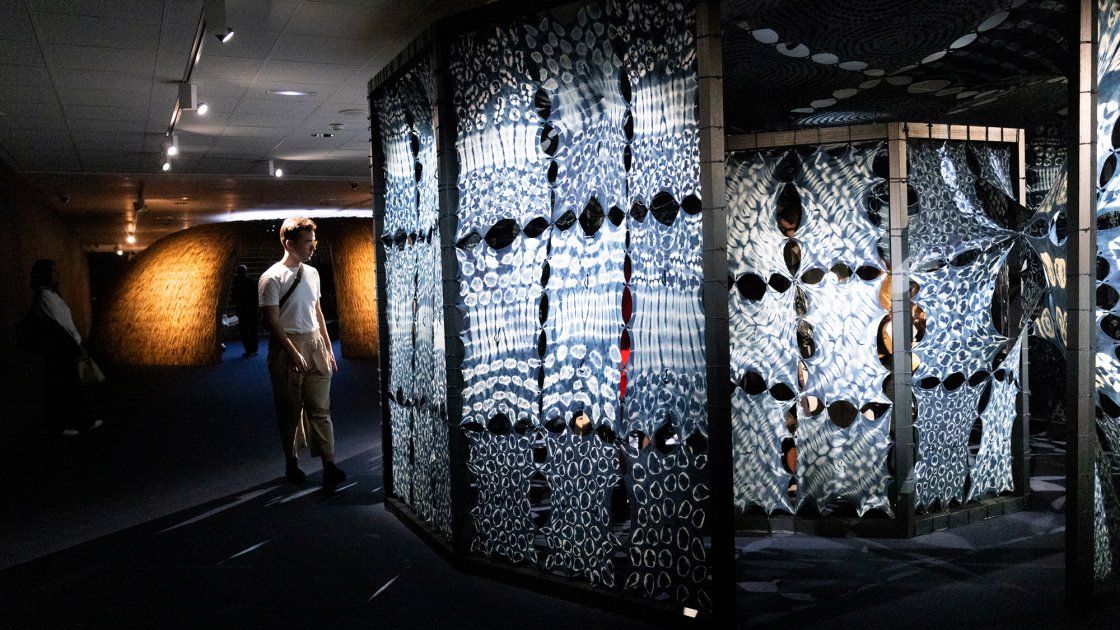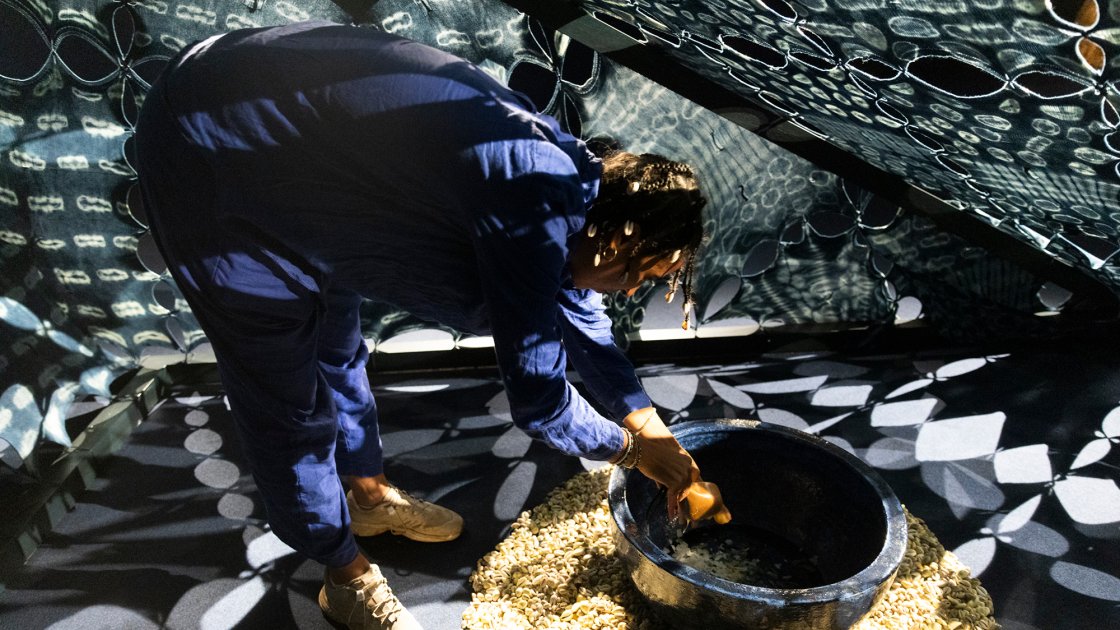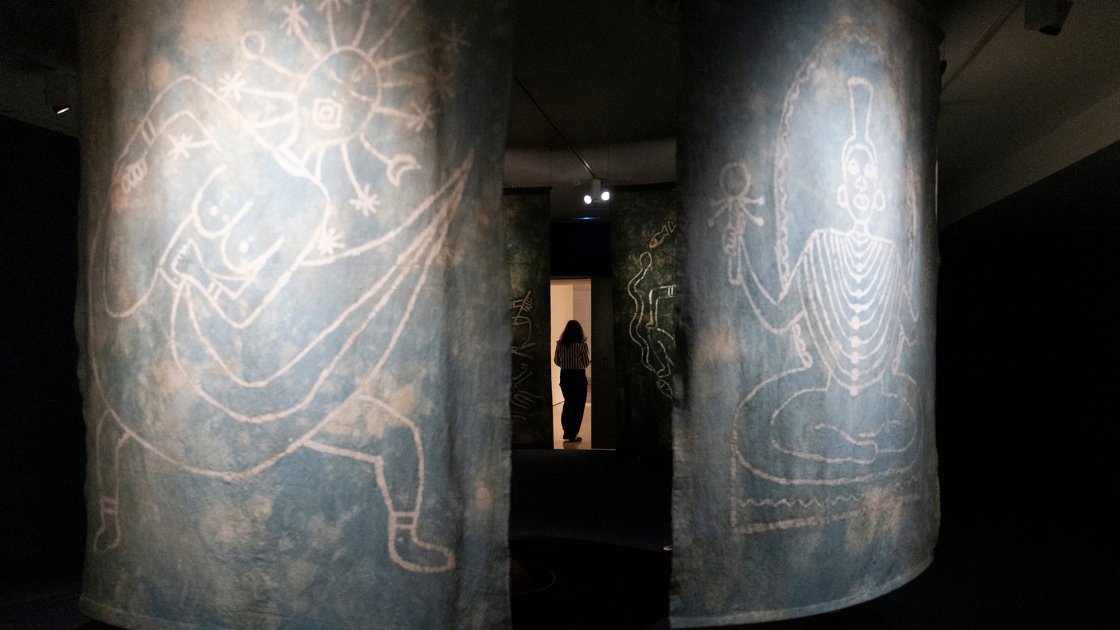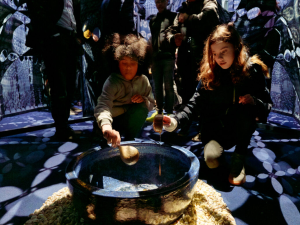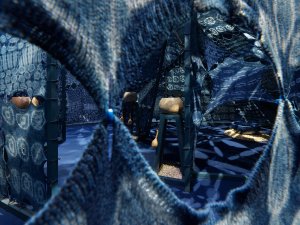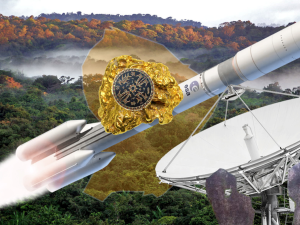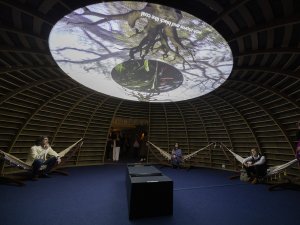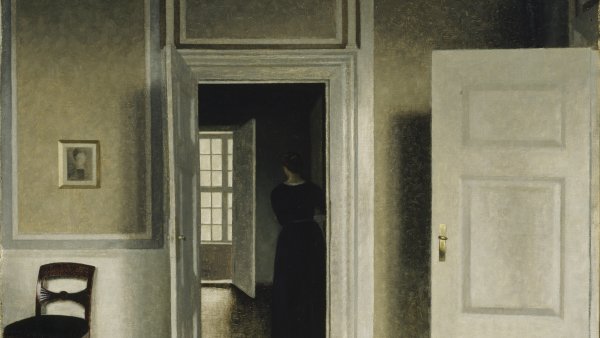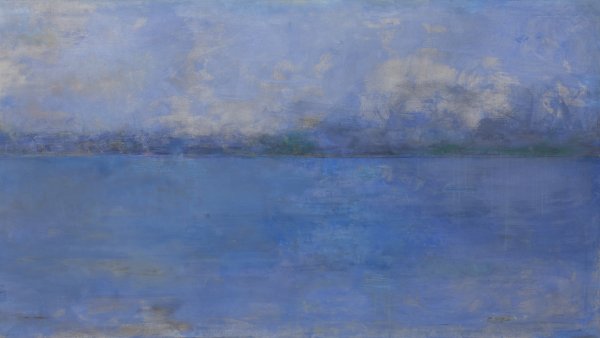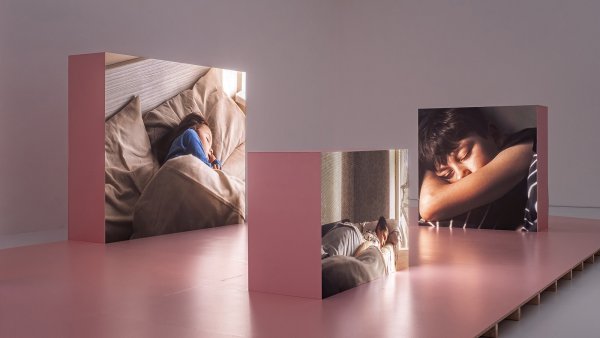Tabita Rezaire. Calabash Nebula
The Museo Nacional Thyssen-Bornemisza and TBA21 Thyssen-Bornemisza Art Contemporary Foundation present Calabash Nebula, the first solo exhibition by the artist Tabita Rezaire in Spain. The exhibition, curated by Chus Martínez, brings together three installations produced in 2024: Omo Elu, Des/astres and OMI: Yemoja Temple, the first, commissioned by the Lagos Biennial (Nigeria) and the following, co-produced in 2024 by TBA21 together with the Fondation Louis Vuitton (Paris) and Schering Stiftung (Berlin), respectively. Two of them are also dedicated to the orisha Yemoja, the main spirit of the African Yoruba religion, who is considered the mother of rivers and oceans, a symbol of the origin and perpetuity of life. “My work in general, and this work in particular, revolves around the infinite, circular cycle of life,” explains the artist.
Rezaire (Paris, 1989) is an Afro-cyber-feminist and interdisciplinary artist, an activist exploring the intersections between technology, arts, spirituality, decolonization and healing. She uses video, performance art and the creation of immersive spaces to challenge hegemonic narratives and advocate a holistic understanding of the world in which realities are interconnected. Her work salvages ancestral knowledges and practices and merges indigenous, African and non-Western knowledges with digital technologies to explore how spiritual and healing practices can be used as tools for resistance, emancipation and reconstruction of identities and communities.
The exhibition continues the line of work on post-colonial societies that the museum and TBA21 have been pursuing this year. Two clear examples of that joint project are the exhibition Colonial Memory in the Thyssen-Bornemisza Collections (from 25 June to 20 October 2024) and the earlier exhibition Search for Life by the Filipino-Canadian artist Stephanie Comilang (from 5 March to 26 May 2024).


